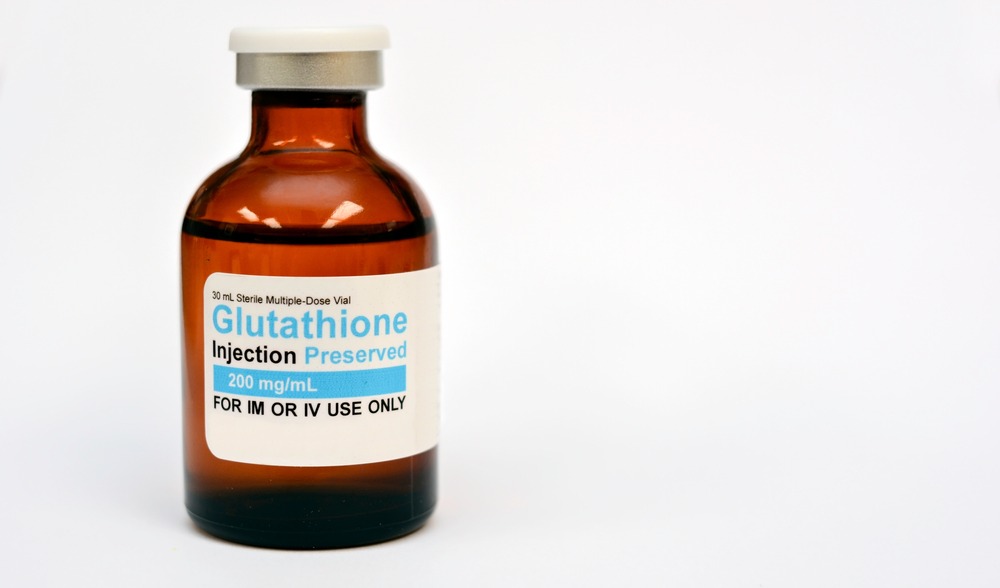

What is Glutathione
Glutathione is a potent antioxidant that the body produces naturally from three amino acid starting materials: glycine, glutamine and cysteine. Most cells within the body have a 5 mmol concentration of glutathione. This is a high cellular concentration considering that magnesium (<1 mmol), cholesterol (1.5 mmol), hemoglobin (1.5 mmol) and calcium (2 mmol) all have a significantly lower concentration within our cells than glutathione1.
What Is Oxidation?
Oxidation is a natural chemical process where an electron is donated from one substance to another. The substance which loses an electron is said to have been oxidized. Examples of oxidation are when an apple starts turning brown after it is cut or rust accumulating on a something made from iron, like the body of a car. Oxidation is everywhere and is responsible for the degrading and break down of most things in our world.
Is Oxidation Harmful
Oxidation is a destructive process and is implicated as an important factor in almost all chronic diseases including cancer, heart disease, infections and dementia. Controlling and combatting oxidative stress is an important goal for treating and preventing major chronic disease.
How Does Glutathione Help?
Glutathione has several functions that make it an essential tool for fighting oxidative stress1.
- Direct chemical neutralization of free radicals
- Cofactor for antioxidant enzymes
- Regeneration of vitamins C and E
- Conjugates intermediates produced by Phase I, prepares for kidney excretion
- Vital to mitochondrial function and maintenance of mitochondrial DNA (mtDNA)1
Who Does Glutathione Help?
Glutathione has the potential to help many different health conditions because of it’s broad activity throughout the body. Research has examined glutathione and it’s precursor n-acetyl cysteine (NAC) and found excellent results treating peripheral artery disease2, Parkinson’s disease3, fatty liver4, coronary reperfusion injury5, bipolar disorder6-7 obsessive compulsive disorder8, schizophrenia6,9,10, addiction treatment11-12, autism13 and flu prevention14.
References
- Pizzorno J. Glutathione! Integr Med (Encinitas). 2014 Feb;13(1):8-12.
- Arosio E, De Marchi S, Zannoni M, et al. Effect of glutathione infusion on leg arterial circulation, cutaneous microcirculation, and pain-free walking distance in patients with peripheral obstructive arterial disease: a randomized, double-blind, placebo-controlled trial. Mayo Clin Proc. 2002 Aug;77(8):754-9.
- Monti DA, Zabrecky G, Kremens D, et al. N-Acetyl Cysteine Is Associated With Dopaminergic Improvement in Parkinson’s Disease. Clin Pharmacol Ther. 2019 Oct;106(4):884-890.
- Honda Y, Kessoku T, Sumida Y, et al. Efficacy of glutathione for the treatment of nonalcoholic fatty liver disease: an open-label, single-arm, multicenter, pilot study. BMC Gastroenterol. 2017 Aug 8;17(1):96.
- Tanzilli G, Truscelli G, Arrivi A, et al. Glutathione infusion before primary percutaneous coronary intervention: a randomised controlled pilot study. BMJ Open. 2019 Aug 8;9(8):e025884.
- Berk M, Copolov DL, Dean O, et al. N-acetyl cysteine for depressive symptoms in bipolar disorder–a double-blind randomized placebo- controlled trial. Biol Psychiatry. 2008 Sep 15;64(6):468-75.
- Magalhães PV, Dean OM, Bush AI, et al. N-acetylcysteine for major depressive episodes in bipolar disorder. Rev Bras Psiquiatr. 2011 Dec;33(4):374-8.A
- Afshar H, Roohafza H, Mohammad-Beigi H, et al. N-Acetylcysteine Add-On Treatment in Refractory Obsessive-Compulsive Disorder: A Randomized, Double-Blind, Placebo-Controlled Trial. J Clin Psychopharmacol. 2012 Dec;32(6):797-803.
- Carmeli C, Knyazeva MG, Cuénod M, Do KQ. Glutathione precursor N-acetyl-cysteine modulates EEG synchronization in schizophrenia patients: a double-blind, randomized, placebo-controlled trial. PLoS One. 2012;7(2):e29341.
- Lavoie S, Murray MM, Deppen P, et al. Glutathione precursor, N-acetyl-cysteine, improves mismatch negativity in schizophrenia patients. Neuropsychopharmacology. 2008 Aug;33(9):2187-99.
- Larowe SD, Mardikian P, Malcolm R, et al. Safety and tolerability of N-acetylcysteine in cocaine-dependent individuals. Am J Addict. 2006 Jan-Feb;15(1):105-10.
- LaRowe SD, Myrick H, Hedden S, et al. Is cocaine desire reduced by N-acetylcysteine? Am J Psychiatry. 2007 Jul;164(7):1115-7.
- Hardan AY, Fung LK, Libove RA, et al. A randomized controlled pilot trial of oral N-acetylcysteine in children with autism. Biol Psychiatry. 2012 Jun 1;71(11):956-61.
- De Flora S, Grassi C, Carati L. Attenuation of influenza-like symptomatology and improvement of cell-mediated immunity with long-term N-acetylcysteine treatment. Eur Respir J. 1997 J u l ;10 ( 7 ):1535 – 41.